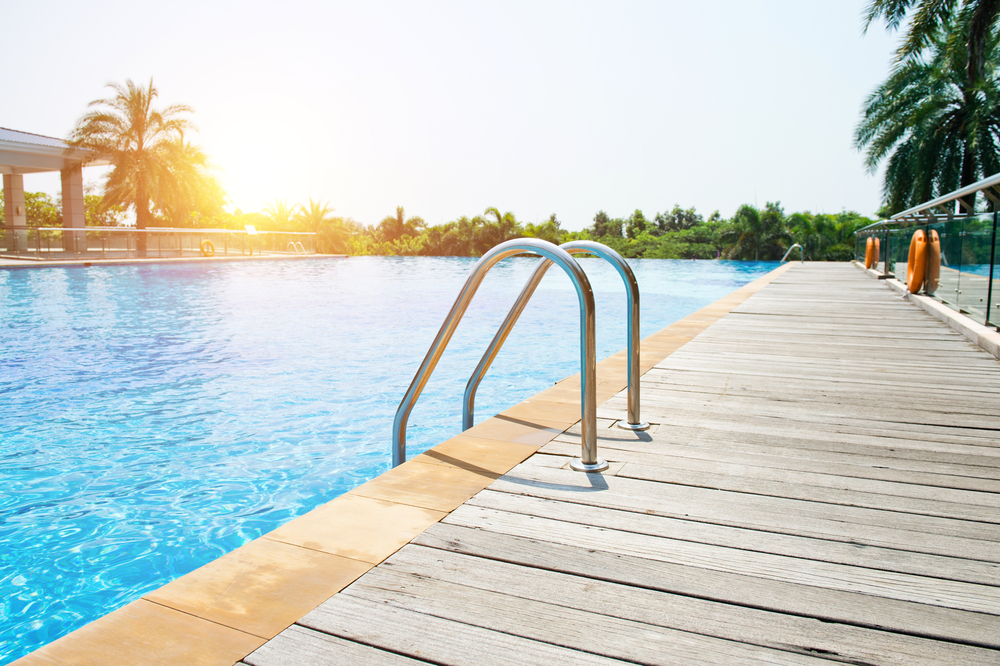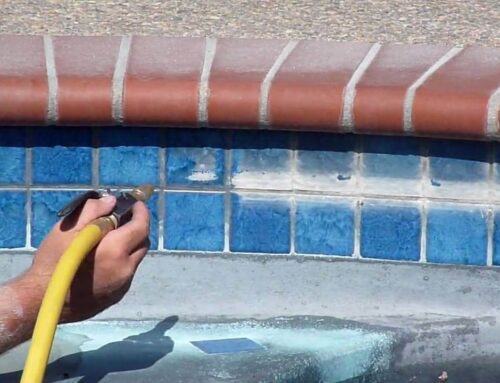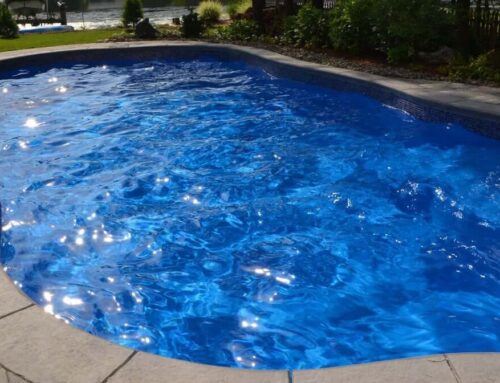The right tools help you make quick work of any job. And that certainly holds true for pool repair calls. But as a technician, you may be called out on a variety of service calls. And being ready for anything is a part of the job description.
In this post, we’re going down the list to help you stock up with the tools you’ll need to fix 95% of the problems you come across.
Let’s start with the fun stuff: power tools.
Pool Technician Power Tools
The lion’s share of your work as a pool tech will take place in residential spaces. So you’re likely to always have access to power outlets. But you shouldn’t rely on it. Whenever possible, bring along cordless power tools to avoid having to stop and start jobs.
-
Cordless Drill
Cordless drills are a staple of any technician’s toolbox, and pool techs are no different. You’ll need a drill for everything from installing light fixtures to tightening flanges. It’s also highly recommended to invest in underwater cordless drills.
Often, an underwater drill can save you an entire day of work by not having to drain a pool to get the job done. However, you may have to look for a specialty supplier or order these online.
-
Cordless Grinder
A lot of your job as a pool technician consists of making sure a pool’s surface is even and smooth. A grinder can make quick work of small dings and dents, especially if you frequently work with concrete pools.
-
Pressure Washer
Another useful tool if you work with concrete pools, but it’s a must-have either way. It can help strip away plaster pool lining when it’s time to replace it. Moreover, it gets rid of algae, mold, and grime in record time.
-
Reciprocating Saw
Pool installation involves a lot of pipe fitting. Whether you’re replacing a pump or installing a new one, a reciprocating saw can save you hours of work cutting pipes by hand. And, of course, a cordless saw is one less headache you’ll have to deal with.
-
Heat Gun
No, you won’t use this to regulate pool temperature. Heat guns are a godsend when you need to soften a vinyl pool liner. Some technicians use blow dryers, but a heat gun will be much quicker. However, you’ll need to get used to the extremely high temperature it produces.
-
Water Pump
You’ll need to pump water out of a pool sooner or later. A 4’’ water pump is a good investment since it can work much faster than a smaller-diameter extractor. But a 2’’ pump is still infinitely better than not having one.
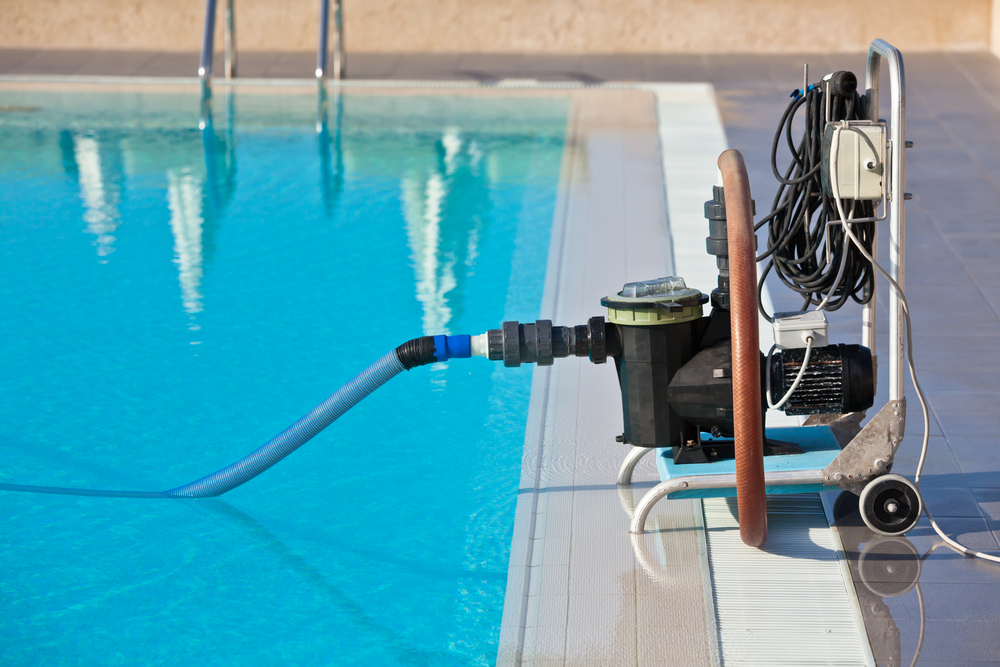
Hand Tools
Many of the hand tools a pool tech uses are pretty standard, but there are a few noteworthy exceptions.
-
Drivers of All Shapes and Sizes
Nut drivers, screwdrivers, hex keys — they’re all worth having. They’re a small investment and take up very little space but can be the difference between having to make a run to the nearest hardware store or finishing a job on the spot.
-
Pliers
You’ll want several types of pliers. Lineman’s pliers will solve most of your problems, but a lot of the time, needle-nose pliers, Channellock pliers, or straight pliers can save you time for specialized applications.
-
Hacksaw
It’s all well and good to have a reciprocating saw. And there’s no question that you’ll be doing the brunt of your cutting with it. But sometimes, there’s no replacement for some good old-fashioned elbow grease. A hacksaw belongs in any technician’s truck.
-
Electrical Tester
We don’t need to tell you there are many electrical hazards involved in pool installation and repair. An electric tester will help keep you safe by testing potential live wires. And it will keep your customer’s equipment safe by ensuring there are no ground faults or short circuits present in the wiring.
-
Chemical Test Kit
A chemical testing kit should be an obvious part of the tool kit but it’s worth putting on the list anyway. Taylor Technologies make comprehensive chemical test kits that you’ll frequently use to ensure the correct chlorine or sodium levels in pools.
-
Bucket
Don’t underestimate just how useful a five-gallon bucket can be.
-
Magnetic Pole Tip
There are few things more frustrating than dropping tools into a swimming pool. But if you have a telescoping pole with a magnetic tip, it’s not a problem at all. Keep around a piece of twine or cord as well for extracting tools from deeper pools.
Supplies
Lastly, there are certain supplies you never want to go without on a job site. It’s a good idea to regularly check on these and restock them.
-
Glue and Putty
There are many types of glue, putties, and adhesives you’ll use based on the application at hand. PVC glue is a must-have, and you’ll use it copiously when you’re installing pumps and other plumbing. Pool putty is one of the most-used items in this category, and you can purchase it in most hardware stores.
If you go to any pool supply store, you’ll find a large variety of sealants, glues, and putties. Experiment a little until you find the ones that you like working with best.
-
Tapes
For starters, you never want to be without duct tape. As the saying goes, duct tape and WD-40 fix 99% of problems in life. It’s a great and inexpensive catch-all fixer. Electrical tape is also a good addition, especially if you often have to install or require pumps or heating systems.
Teflon tape is also a must-have for waterproofing threading and adjusting small discrepancies in pipe diameters. And, of course, masking tape will help you keep everything clean and tidy in a variety of situations.
-
Pool Chemicals
You don’t need to keep 200 lbs of salt on hand. But a modest supply of sanitizers, oxidizers, and water balancers will let you make adjustments as needed on the spot rather than making a return visit.
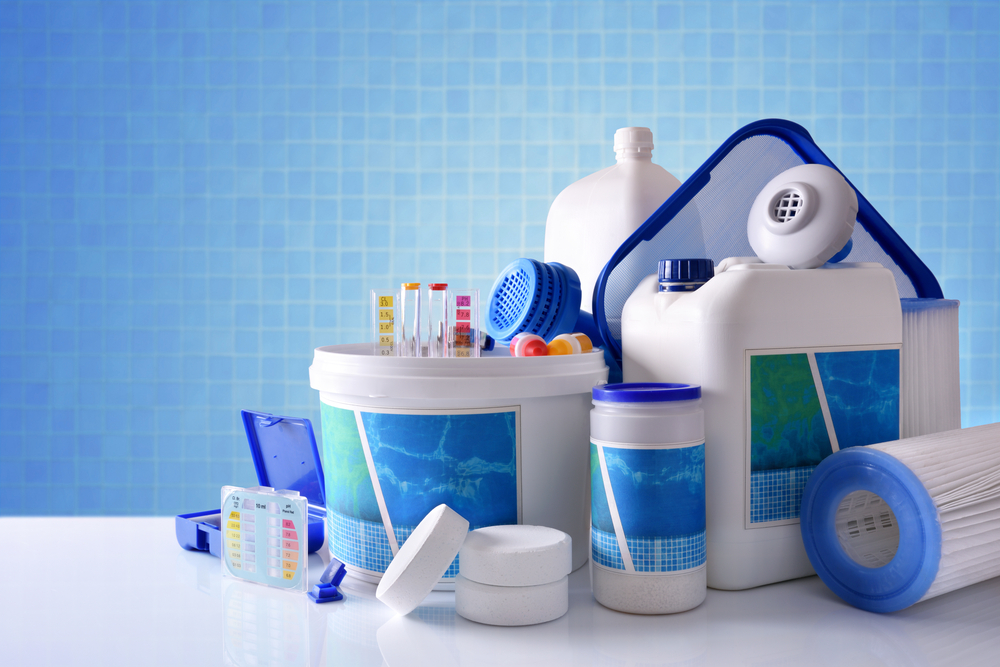
-
Spare Parts
If you’ve ever been on a service call and find out you’re missing that one spare part to finish the job, you know just how frustrating it can be. So, keep around some of the most frequently replaced parts to avoid those situations.
Some things you might want to keep stocked up on include debris bags for water pumps, pool filters, gaskets, connector kits, and the like. It’s obviously impossible to predict what model of equipment you’ll be working on, but after a while working in an area, you’ll get a pretty good idea of what you’re dealing with and what parts keep being a problem.
The Right Tool at the Right Time
There you have a more-or-less complete list of what you’ll need to get started. As you become more acquainted with the types of pools and jobs you tend to work on; you’ll be able to make more specific additions to your arsenal.
At Florida Pool and Patio, nothing makes us happier than to see our customers happy and to grow the pool-lovers community. If you have any pool-related questions, please leave us a comment, and we’ll get back to you as soon as possible.
And if you’re ready to get a pool from the best pool installation Miami has to offer, call us today and we’ll send one of our installation professionals to give you a free quote!

